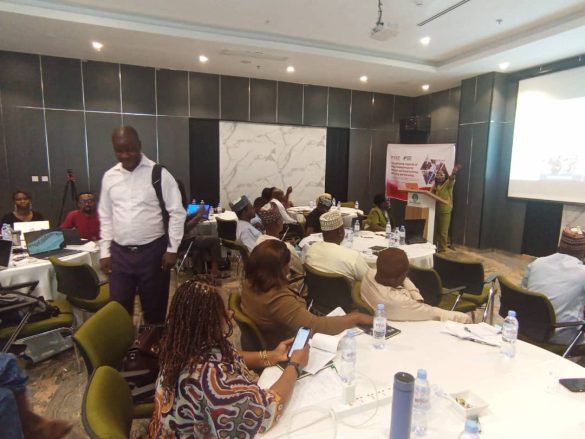***Says Nutrition Reporting Can Drive National Behaviour Change and Policy Action
Nigerians have been urged to “color their plates” by eating from all 12 recognized food groups to boost health, productivity, and national development.
The call was made by Dr. Olapeju Phorbee, Executive Director of the Food Agriculture Nutrition Network (FANN), during a two-day capacity-building training for media professionals on nutrition and food systems reporting, organized by the Global Alliance for Improved Nutrition (GAIN) in partnership with Nigeria Health Watch in Abuja.
Dr. Phorbee said many of the country’s health challenges are rooted in poor dietary habits and limited awareness of balanced nutrition.
“You are sensitizing the public, educating, informing, and advocating and ultimately driving behavior change,” she told journalists. “Through your reports, you help shift norms and influence systems for the better.”
Listing the 12 food groups cereals; roots and tubers; pulses; nuts and seeds; leafy and non-leafy vegetables; fruits; meat and poultry; fish and seafood; eggs; milk and dairy; oils and fats; and sugars or miscellaneous foods she explained that eating foods with diverse colors provides essential nutrients needed for energy, growth, and disease prevention.
“Our message is simple: color your plate. A meal that combines varieties from these 12 food groups provides balance and improves well-being,” she emphasized.
Dr. Phorbee also encouraged journalists to become agents of change, using their platforms to promote healthier eating habits, influence public attitudes, and push for nutrition-sensitive policies.
Highlighting five principles of good nutrition Adequacy, Balance, Calorie Control, Moderation, and Variety she said these, when applied consistently, promote long-term wellness.
Participants at the training were introduced to the “Eatwell Plate,” a visual guide that illustrates how to balance daily meals across food groups such as fruits, vegetables, cereals, proteins, dairy, and limited fats or sugars.
“Nutrition is not just a health issue; it’s an economic, social, and developmental issue,” Dr. Phorbee noted. “The media has the power to make nutrition everyone’s business.”
On his part, Mr. Victor Ekeleme, Senior Associate, Communications at GAIN, reaffirmed the organization’s commitment to empowering Nigerian journalists with the knowledge and tools to effectively report on nutrition and food systems.
“The stories we tell, and how we tell them, shape public understanding, influence policies, and mobilize action. That is where you, our partners in the media, play a crucial role,” Ekeleme stated.
He explained that the training aims to help journalists produce evidence-based and solution-driven stories that can drive positive change in communities.
Over the two days, participants engaged with experts on topics such as food fortification, nutrition policy frameworks, combating misinformation, and using artificial intelligence for impactful storytelling.
Ekeleme urged the media to maximize the opportunity for collaboration and advocacy, stressing that informed reporting on nutrition can help build a healthier and better-nourished Nigeria.

